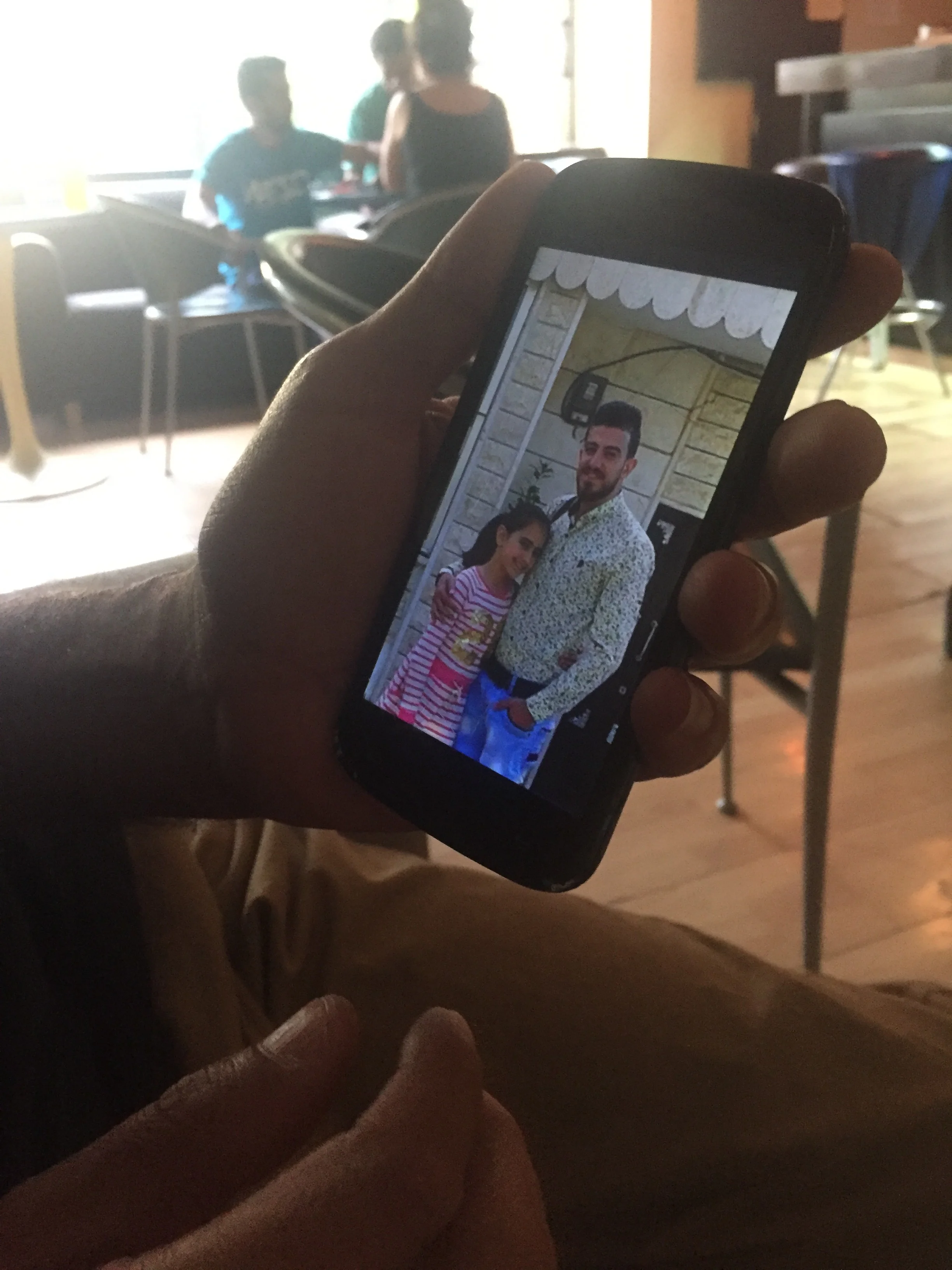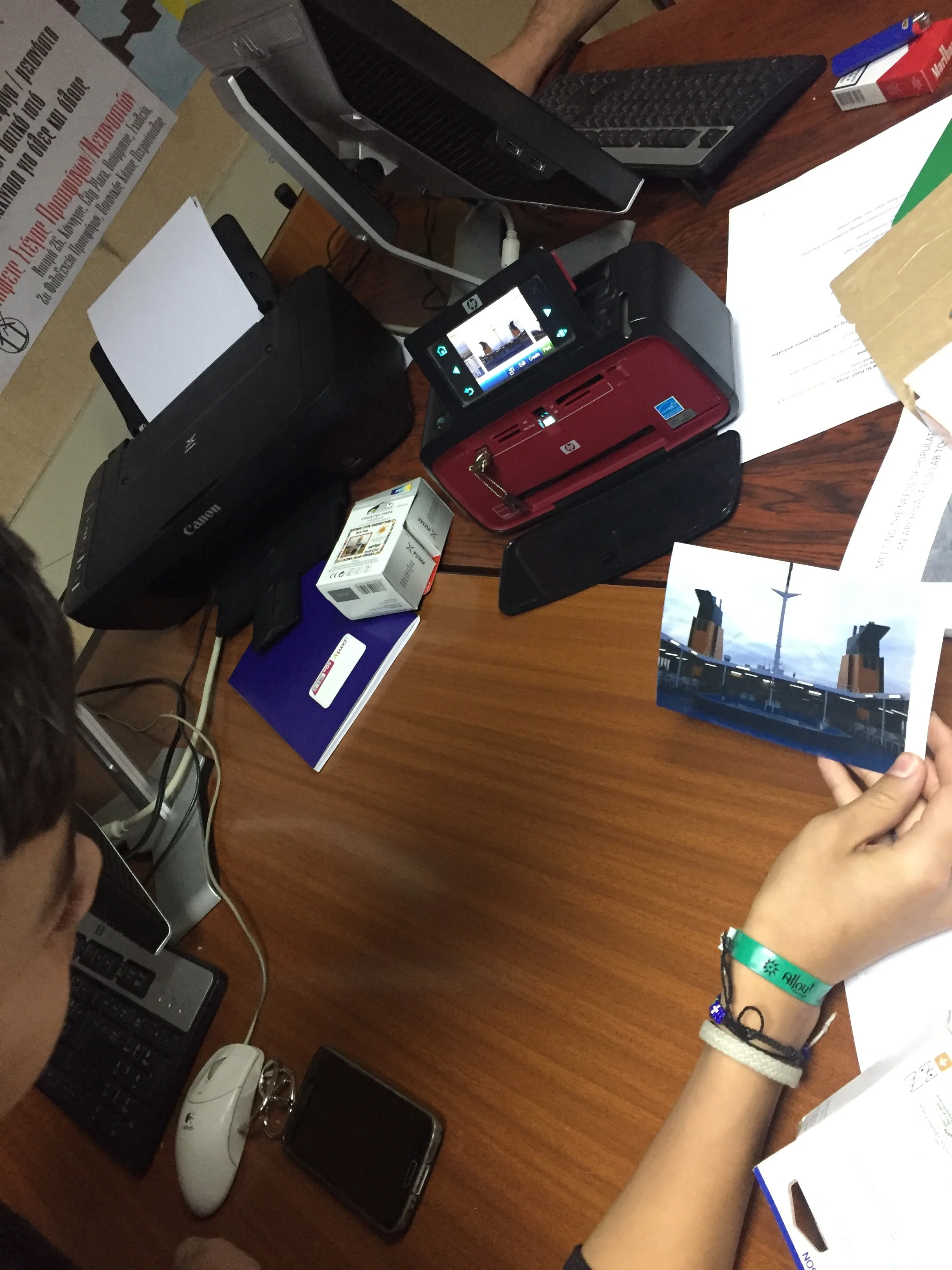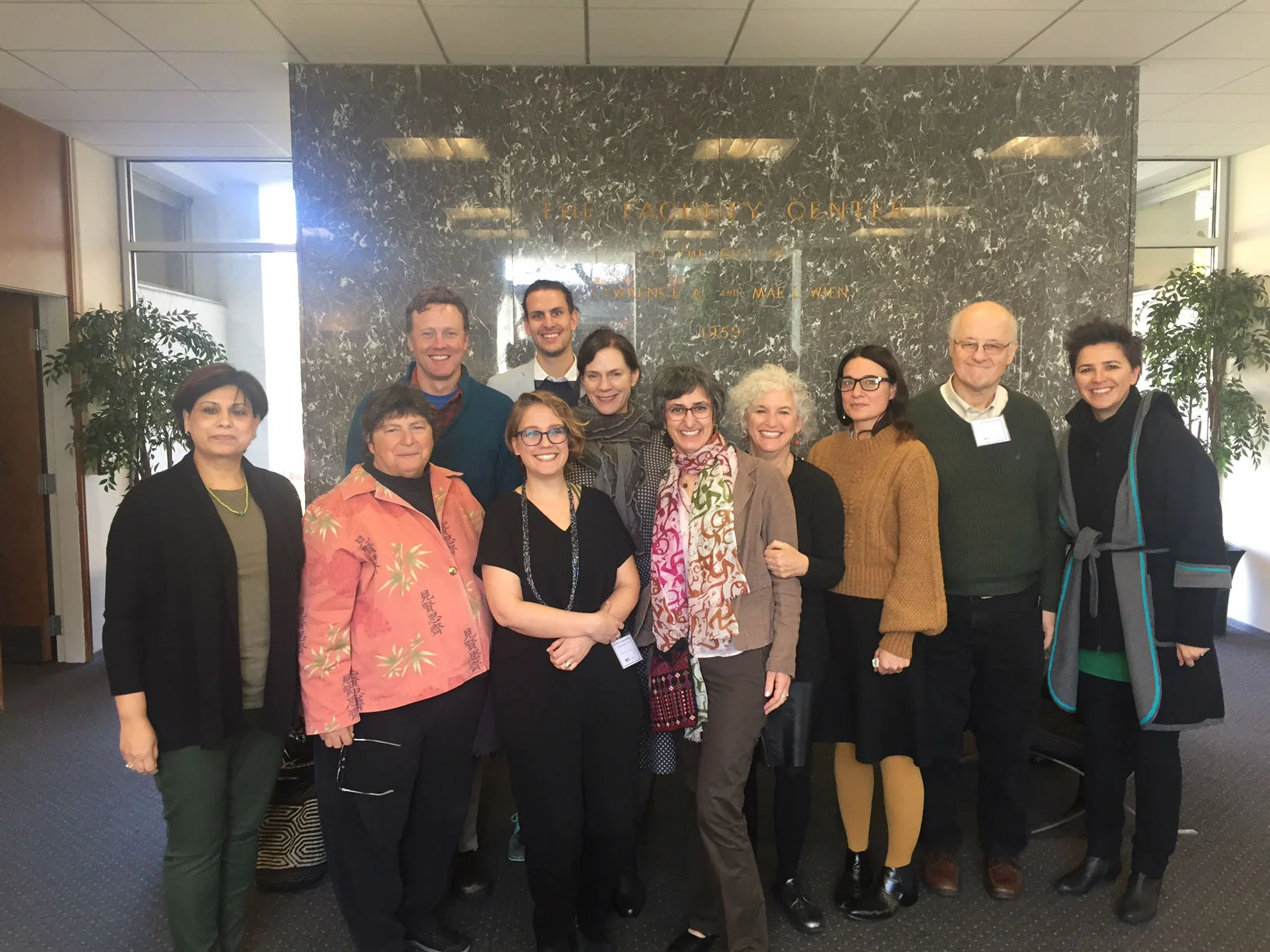ALEPPO DESIGN LAB
A design lab is a problem-solving technique that brings together numerous stakeholders around an issue in order to produce ideas about forming structures, processes or creative expressions that lead to more socially just, peaceful, resilient and vibrant communities.
The Aleppo Design Lab was a collaboration between me, as Interim Director of The Rose Art Museum and Dr. Cynthia Cohen, Director of Brandeis' Peacebuilding and the Arts program. Students from the course Introduction to Creativity, the Arts and Social Transformation ( CAST ) were participants. Professionals from the fields of preservation, public policy, peace & co-existence studies and architecture were invited to inform the process, and then evaluate ideas generated by the Lab. They included, in part, AlHakam Shaar and Robert Templer of The Aleppo Project, based at The Shattuck Center at Central European University, Turkish arts administrator Eylem Erturk of Anadolu Kültür, Syrian architect Rim Lababidi, composer / activist from Georgia, U.S., Jane Sapp.
The aim of the Lab was to introduce students to the idea that tangible and intangible cultural heritage play a role in building resilience in communities impacted by war and conflict. The mission of the lab was to consider strategies for the recovery of an anonymous city post-conflict, using frameworks informed by conflict transformation theories, and by the First Aid to Cultural Heritage (FAC) mission.
A final report was published in February 2017. Sponsored by The Andrew W. Mellon Foundation.
MEETING THE NEEDS OF REFUGEE RECORDS: AN ARCHIVE FIELD LAB & TRAINING SCHEME
Through my work with the local homeless community in Boston, I understand the necessity of preserving important identity papers and personal records. Without identity papers, access to social services become nearly impossible. Depriving vulnerable people of their personal items exacerbates stress and creates more instability. Recognizing similar issues faced by refugees, I created a pilot scheme: a portable archive field lab and preservation training to save refugee records. These records are mainly held in digital form on mobile phones, or are physical records at risk due to extreme living conditions. They contain evidential, informational, administrative, historic, personal and artistic value. Preservation of and access to these critical records will allow owners to re-establish connections to personal business and safeguard their personal heritage, offering the possibility of retaining collective memory, preservation of identity, and protection against loss of vital records that support juridical processes.
The field lab was successfully tested by librarians, archivists and anthropology students at Brandeis in January 2017. The Archive Field Lab was deployed at the Refugee Accommodation and Solidarity Space in Athens, Greece in May and October 2017, focusing on young, unemployed male refugees. Plans are underway to set up a second lab in Athens for women refugees. I will host a training for archivists through the New England Museum Archivists 2019 annual meeting, with a focus on the local homeless community.
Funded through crowdsourcing.
CULTURE CANNOT WAIT: THE ROLE OF HERITAGE PROTECTION IN AN HUMANITARIAN SETTING (AN EXPERT WORKSHOP)
In November 2017, I convened a group of experts from the fields of public policy, cultural preservation, and humanitarian aid at the Rose Art Museum, to explore conflict transformation through the lens of art and culture. Called "Culture Cannot Wait" (CCW), this three day invitational workshop - which included an accompanying exhibition and public program - built off themes that emerged from the Smithsonian's Cultural Rescue Initiative two-day workshop "Integrating Humanitarian Response and Cultural Heritage in Disasters" (where I was a participant). CCW was formed around a series of questions related to the role of cultural recovery alongside mechanisms for humanitarian aid, including OCHA's Emergency Cluster System and the First Aid to Cultural Heritage in Times of Crisis (FAC) framework. Contributors included, in part, Aparna Tandon (ICCROM) Leora Kahn (Proof: Media for Social Justice), Azra Aksamija (Director, MIT Future Heritage Lab), Cynthia Cohen (Director, Brandeis University's Peacebuilding and the Arts Program), Andras Riedlmayer (Bibliographer in Islamic Art and Architecture in Fine Arts Library), and Mariam Bachich (Multaka). Facilitated byexperts from the Heller School for Public Policy, the group created a theory of change for FAC. Additionally, based on workshop conclusions, a conflict transformation module will be incorporated into the FAC curriculum and piloted in Mali, Africa in fall 2018. A full report will be published in the upcoming months.
Sponsored by The Andrew W. Mellon Foundation.












